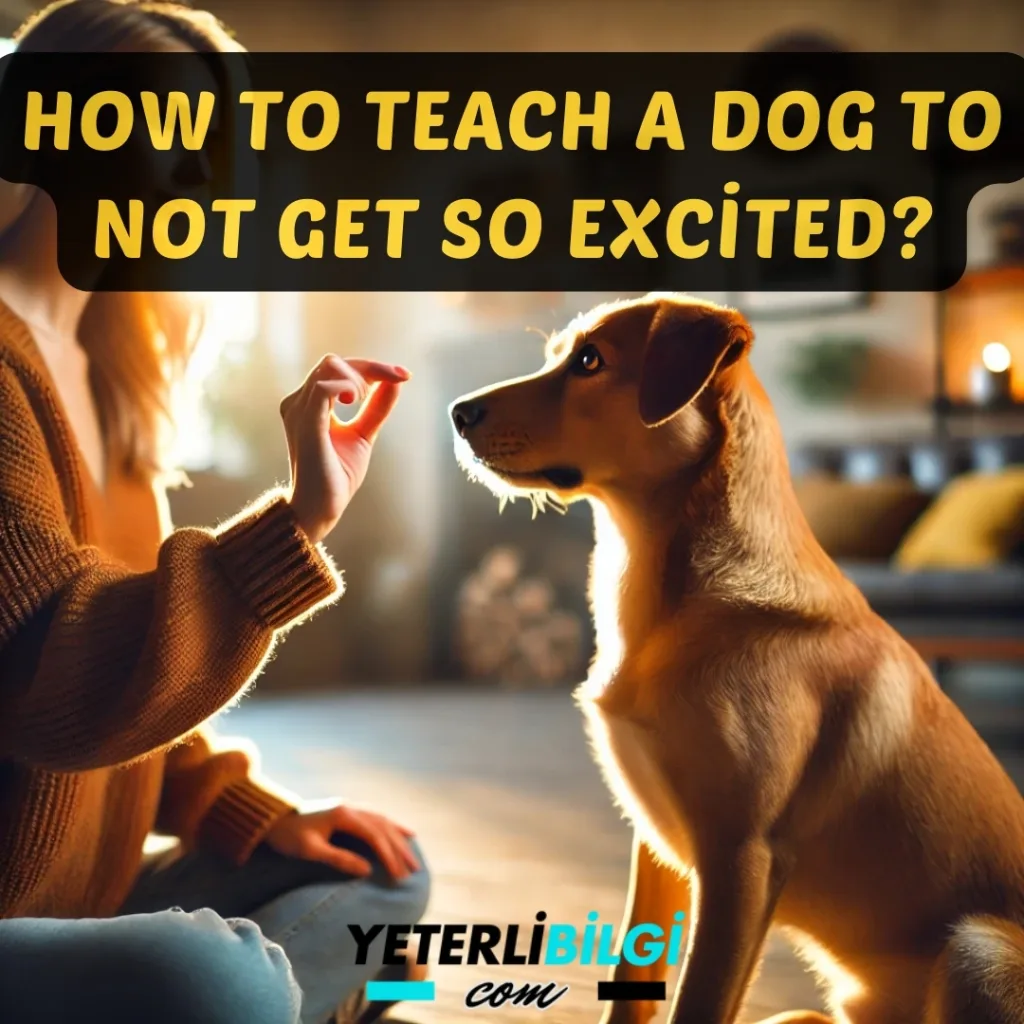How To Teach a Dog To Not Get So Excited?
Does your dog go crazy every time you come home or a guest arrives? You’re not alone. Many dog owners struggle with overly excited dogs. While their enthusiasm is endearing, it can be problematic. A dog that’s overly excited might jump on guests, knock things over, or even become aggressive. The good news is that you can teach your dog to be calmer in these situations. This will take patience, consistency, and a positive approach.
Why Does My Dog Get So Excited?
Before we get into the training, it’s helpful to understand why your dog gets so excited. Here are a few possible reasons:
- Energy and Exercise: Dogs are naturally energetic creatures, and if they don’t get enough exercise, that energy can manifest as overexcitement.
- Breed: Some breeds are simply more prone to excitement than others. For example, herding breeds like Border Collies and Australian Shepherds were bred to work all day, so they have a lot of energy to burn.
- Specific Triggers: Certain things can trigger excitement in dogs. This could be the sight of a leash (which signals a walk), the doorbell, or the arrival of a favorite person.
- Attention Seeking: Dogs quickly learn that excited behavior gets them attention, even if it’s negative attention.
How to Calm an Over Excited Dog
Here are some practical, proven strategies to help your dog chill out:
1. Exercise, Exercise, Exercise
A tired dog is a well-behaved dog. Make sure your dog gets enough physical exercise. This could include:
- Daily Walks: Aim for at least one long walk each day.
- Running and Playing: If you have a yard, let your dog run and play fetch.
- Dog Parks: Dog parks are a great place for dogs to socialize and burn off energy.
Pro Tip: Don’t just let your dog run around aimlessly in the backyard. This may not be enough to truly tire them out. Instead, engage them in structured activities that require focus, like a walk or a game of fetch.
2. Mental Stimulation
Just like humans, dogs need mental stimulation to be happy. Provide your dog with plenty of mental enrichment activities. Here are some ideas:
- Puzzle Toys: Puzzle toys make dogs work for their food, which helps tire them out mentally.
- Training Sessions: Obedience training is a great way to engage your dog’s mind and teach them valuable skills.
- Scent Games: Scent work taps into a dog’s natural instincts and can be very tiring.
Pro Tip: If your dog gets overexcited during a game, immediately stop playing and calmly walk away. This will teach them that overexcitement ends the fun.
3. Ignore the Excitement, Reward the Calm
The worst way to respond to an overexcited dog is with more excitement. Instead:
- Ignore Unwanted Behavior: Don’t give in to the temptation to yell at your dog or try to physically restrain them when they are overly excited. This may only increase their arousal level.
- Reward Calm Behavior: When your dog is calm, reward them with praise, petting, or treats. This will help them understand that calm behavior gets them what they want.
Pro Tip: Practice “capturing calmness” throughout the day. When you notice your dog lying down quietly, calmly say “yes” and toss them a treat. This will reinforce calm behavior even when there are no specific triggers present.
4. Desensitize to Triggers
If you know what triggers your dog’s excitement (e.g., the doorbell), you can slowly desensitize them to it:
- Start Small: Begin by exposing your dog to a very mild version of the trigger. For example, if the doorbell is the trigger, have a friend ring it from outside while your dog is far away.
- Reward Calm Behavior: If your dog stays calm, reward them with a treat.
- Gradually Increase Intensity: Slowly increase the intensity of the trigger over time. For example, have the friend ring the doorbell from closer and closer.
Pro Tip: You can also use counter-conditioning to change your dog’s emotional response to a trigger. For example, if your dog gets excited when you pick up their leash, start picking up the leash at random times throughout the day without actually going for a walk. Each time you pick up the leash, give your dog a high-value treat. This will help them associate the leash with something positive (treats) instead of excitement.
5. Teach a “Settle” Cue
Teaching your dog a “settle” or “calm down” cue can be incredibly useful. Here’s how:
- Choose a Cue Word: Pick a word or phrase like “settle” or “calm.”
- Mark and Reward: When you notice your dog naturally settling down, say your cue word and immediately give them a treat.
- Practice: Practice this in various situations, gradually increasing the level of distraction.
Pro Tip: Once your dog understands the cue, you can use it to help them calm down when they start to get excited.
6. Manage the Environment
Sometimes, the best way to prevent overexcitement is to manage your dog’s environment. Here are a few ideas:
- Create a Safe Space: Provide your dog with a quiet, comfortable place to retreat to when they feel overwhelmed. This could be a crate or a dog bed.
- Limit Access: If your dog gets overly excited when guests arrive, put them in their safe space before the guests come in.
- Use Baby Gates: Baby gates can be useful for limiting your dog’s access to certain areas of the house.
Pro Tip: You don’t have to let your dog greet every person or dog they encounter on a walk. If you see a trigger that might cause your dog to get overly excited, cross the street or simply keep walking.
What If My Dog Still Won’t Calm Down?
If you’ve tried all of the above tips and your dog is still struggling to control their excitement, it’s a good idea to consult with a veterinarian or a certified dog trainer or behaviorist. There may be an underlying medical or behavioral issue that needs to be addressed.
Teaching your dog to calm down can be challenging, but it’s definitely possible. Remember to be patient, consistent, and use positive reinforcement methods. With a little time and effort, you can help your dog learn to manage their excitement and be a more relaxed, well-adjusted companion.


